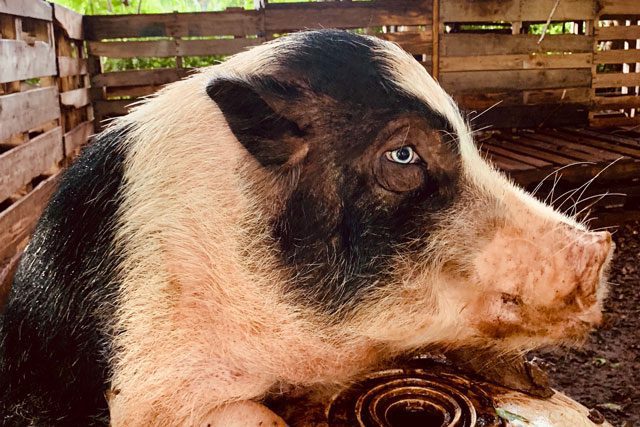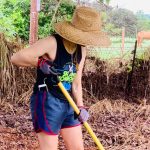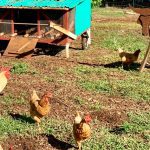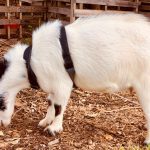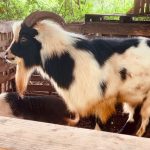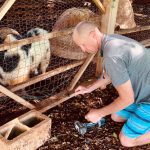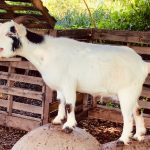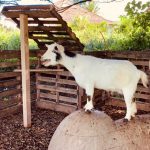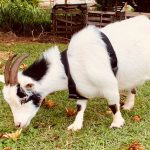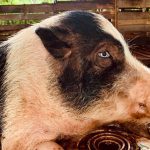Homelani Homestead produces food and cares for animals.
Which came first: the chicken or the pigs? Or was it the goats?
No matter the order, all are a part of Homelani Homestead, a homesteading project of The Salvation Army’s Hawaiian and Pacific Islands divisional camp, Camp Homelani.
The food produced at the homestead supplies the camp kitchen and is also offered to locals, with recent crops including bananas and papayas. The goats and pigs generate community interest, increasing local knowledge of Camp Homelani, specifically, as well as the overall mission of The Salvation Army.
Camp Homelani planted its first banana plants in 2016, when groundskeeper Steven Dempsey and a Revolution Hawaii crew prepared a large garden plot—clearing weeds, tilling the soil, digging trenches and installing pipes. They also planted papaya trees, originally sprouted from seeds Dempsey purchased from the University of Hawaii seed lab.
“We set some bananas outside the camp gate in a produce stand for people to leave a donation,” Noland said. And it worked.
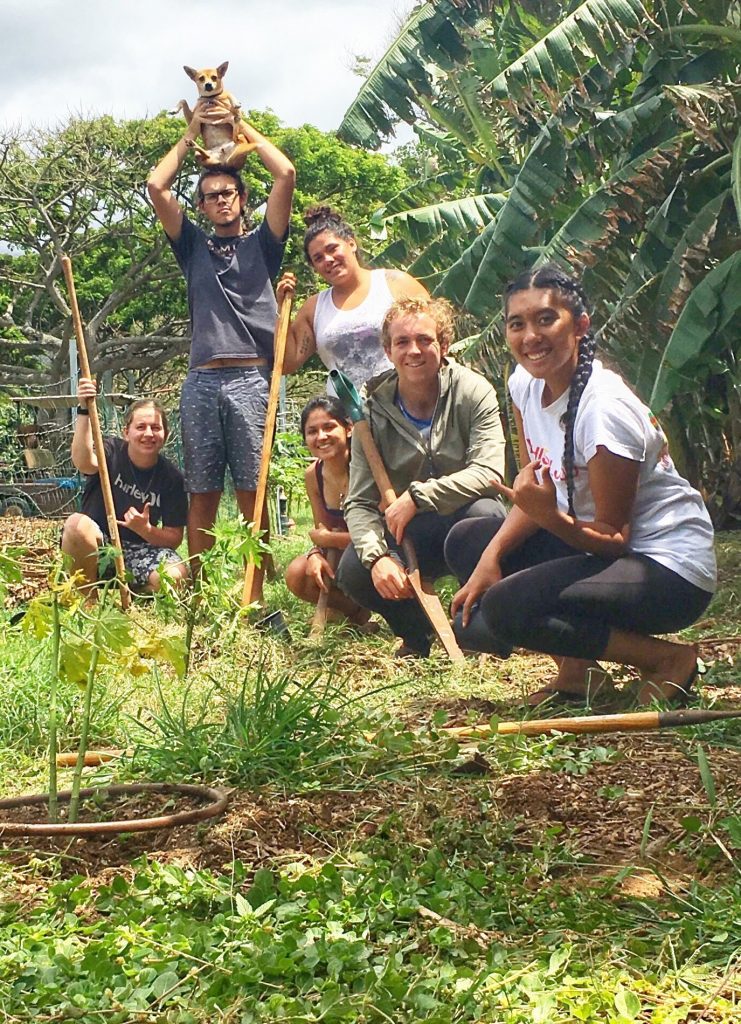
Homelani Homestead’s pig, Charlotte, is somewhat of a local celebrity. She arrived at camp as a tiny baby piglet in need of a home. A neighbor delivered her to Fulton Hawk, Assistant Director for Revolution Hawaii and Camp Homelani, who became her surrogate father. She is fierce-looking now, but as a baby she slept with Hawk and followed him around. People would stop by just to see Charlotte. Today, Hawk is still her favorite person.
Sensing the project’s potential, Camp Homelani and Revolution Hawaii Director Rob Noland brought Julia Kleemann on board to bring a focused energy to the effort, to set goals and see how far the project can go. When Kleemann arrived to manage Homelani Homestead, Noland told her to “dream big.”
With a degree in agribusiness and previous experience at camp as a Revolution Hawaii member, Kleemann is a perfect fit. She has help from the Revolution Hawaii team members, who reside at camp. They help maintain the garden and care for the animals.
Kleemann hopes to participate in the local farmers’ market, and to bring school and community groups to the camp for tours.
The homesteading project is in line with ideals that young adults value, Noland said—working toward a self-sustaining camp, and connecting with God’s creation and caring for it, thereby serving God and ultimately serving others, too.








